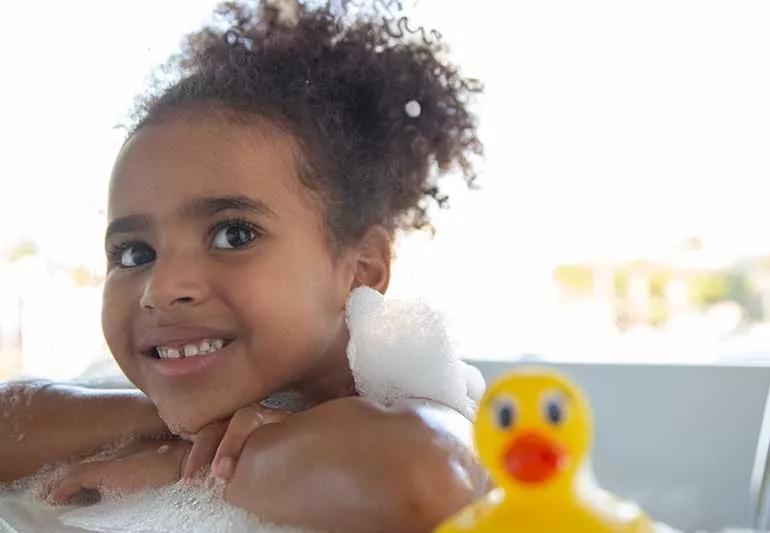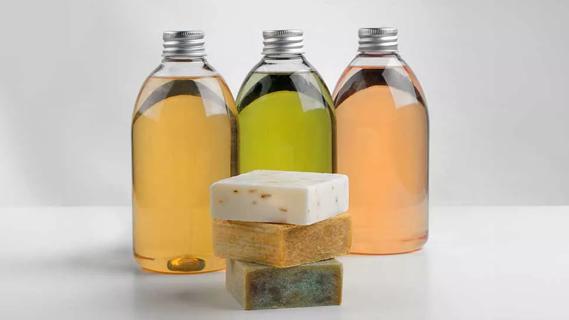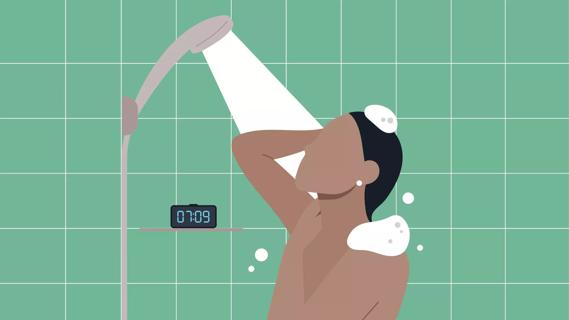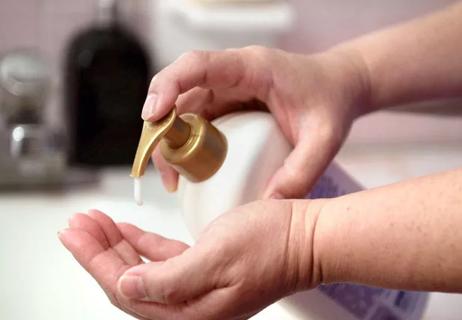Turns out, bubble baths aren’t a great idea at any age

Bath time can be lots of fun for your wee one, and a great way to soothe them and get them ready for bed. But exposure to soap and bubbles can also hurt their privates, leaving them itchy and uncomfortable.
Advertisement
Cleveland Clinic is a non-profit academic medical center. Advertising on our site helps support our mission. We do not endorse non-Cleveland Clinic products or services. Policy
But there’s good news: Knowing how to properly bathe your child can help minimize the risks of vaginal irritation and keep bath time fun.
So, grab your rubber duckie! We’re doing a deep dive on bubble baths. Our guide, pediatrician and adolescent medicine specialist Tornia Wyllie, MD, explains why bubble baths aren’t a great idea at any age — but especially for little girls.
While it’s not the most common cause of genital irritation in kids, it’s true that bubble baths can cause urinary tract infections (UTIs). Most of the time, UTIs are bacterial in nature. You can get a UTI in any part of your urinary tract: your urethra, your bladder, your kidneys or your ureters.
While it’s more common in little girls, little boys can also develop UTIs. Boys are most vulnerable to UTIs in the first few months of their lives — or if they’re uncircumcised.
A UTI can cause a wide range of symptoms, among them:
A urinary tract infection is a serious condition that needs to be treated immediately. But it’s also not the most common cause of genital irritation. In fact, it only affects 1% to 2% of children. Especially for young girls, soap vulvitis is typically going to be the cause of your kiddo’s discomfort.
Advertisement
While your child could develop a UTI due to irritation from a bubble bath, it’s more often the case that they’re experiencing soap vulvitis: An irritation of the vagina caused by soap exposure. The most common symptoms of soap vulvitis are:
Soap vulvitis is the most common cause of these symptoms in babies, toddlers and young children. But there are plenty of other reasons a child might be experiencing vulvar irritation, too.
Dr. Wyllie describes soap vulvitis as “a diagnosis of exclusion.” In other words, your child’s healthcare provider needs to first rule out other possible causes of vaginal irritation.
“For example,” Dr. Wyllie says, “in toddlers, you ask if the itching is because they have a pinworm infection? Is it coming from the detergent you’re using on their underwear? Is it a hygiene problem? Or is it related to them having a bubble bath?”
One quick way to figure out if soap vulvitis is the culprit to stop the bubble baths. “If, in the next two days, once you get to your primary care doctor, things are better, then you’ve isolated the reason for the irritation,” Dr. Wyllie notes.
If you’re kiddo’s feeling miserable, Dr. Wyllie recommends using a cool compress on the red, swollen areas of their vulva. She likewise suggests using an emollient cream to calm the skin and reduce the itching. Cool air from a blow dryer can also soothe an irritated area.
You can also treat soap vaginitis with baking soda and warm water soaks. Dissolve 4 tablespoons of baking soda in a bathtub full of warm water. The baking soda will help get any stubborn soap, urine or other irritants off of your little one’s genitals, which will speed up the healing process.
Let your child soak in the tub for 10 minutes twice a day for two days — and follow up with a humectant to seal in the moisture and prevent itching.
Dr. Wyllie says doing the following things during bath time can reduce the risk of developing soap vulvitis:
Advertisement
Bubble bath isn’t the only thing that can cause your little one to experience vaginal irritation. Dr. Wyllie also recommends doing the following for your kiddo:
Dr. Wyllie’s personal threshold for deciding when it’s time for a child to see their pediatrician about vaginal irritation is simple: “If you’re worried enough to Google it, you’re worried enough to contact your doctor.”
You should also contact your child’s healthcare provider if:
Advertisement
These symptoms could indicate a vaginal condition like a UTI, bacterial vaginosis or a yeast infection, all of which require medication.
So, when is it safe to start giving your child bubble baths?
It depends on who you ask.
Shower and bath products are a multibillion-dollar industry, so you’ll see a lot of products on the shelf that claim to be safe and non-irritating at any age. You’ll also see websites claim that it’s safe to use bath products after puberty because the lining of the vulva becomes thicker and less sensitive.
But if you ask Dr. Wyllie, it’s never a good idea to use bubble bath — even as an adult.
It’s true that the vaginal environment changes with age, but that doesn’t mean it develops an immunity to chemicals in bath water. It does mean that the symptoms (and possibly even the diagnosis) will shift. Instead of soap vulvitis, for example, an adult may develop a UTI from their bath products.
Dr. Wyllie suggests avoiding bath products at any age. If you do opt to run a bubble bath or drop a bath bomb in the tub with you, though, it’s important to make sure you know what you’re putting in your water. Products that are “formulated for sensitive skin,” “hypoallergenic” or “natural” can still irritate your vulva and throw off the delicate ecosystem inside your vagina.
Advertisement
Bubble baths can be lots of fun, but that doesn’t mean they’re good for you. In babies, children and small toddlers, those suds can cause irritation (soap vulvitis in girls) or even a urinary tract infection.
While the vaginal ecosystem changes with age, kids don’t “grow out of” a sensitivity to soap. Rather, the kinds of complications bubble bath and other bath products cause changes. That’s why it’s not a good idea for anyone to use bubble bath, adults included.
If you notice that your child’s vulva looks different than usual — for example, if it’s red or the skin appears to be breaking down — take them to their healthcare provider. They can help you determine what’s causing the irritation, treat it and provide tips to prevent it from happening again.

Sign up for our Health Essentials emails for expert guidance on nutrition, fitness, sleep, skin care and more.
Learn more about our editorial process.
Advertisement

Bathing once a day is the general guidance, but you could also have reasons to soap up twice a day or not at all

You’re sharing your sheets with dust mites, bacteria and lots of dead skin, so you’ll want to keep your bedding fresh

You may notice itching, redness and swelling after wearing or using laundered items

We don’t fully understand how cleanliness impacts immune system development, but we do know that preventing illness is important

An icy blast may boost mental clarity, increase circulation and give your skin a little glow — but don’t overdo it

This olive oil-based soap is generally mild and safe when diluted

It’s a wash — when you bathe is a personal preference

Try turning the heat down on the water and opting for a moisturizing soap

Even small moments of time outdoors can help reduce stress, boost mood and restore a sense of calm

A correct prescription helps your eyes see clearly — but as natural changes occur, you may need stronger or different eyeglasses

Both are medical emergencies, but they are very distinct events with different causes